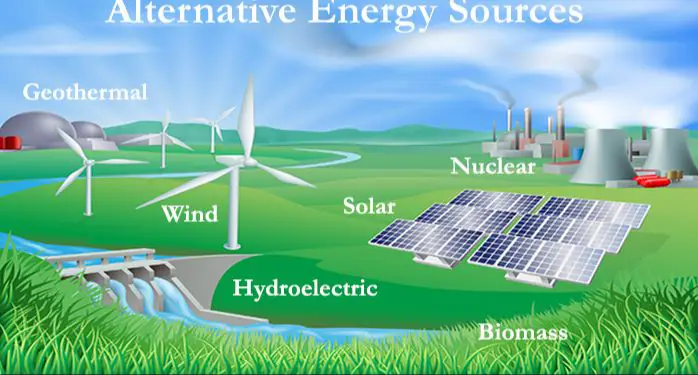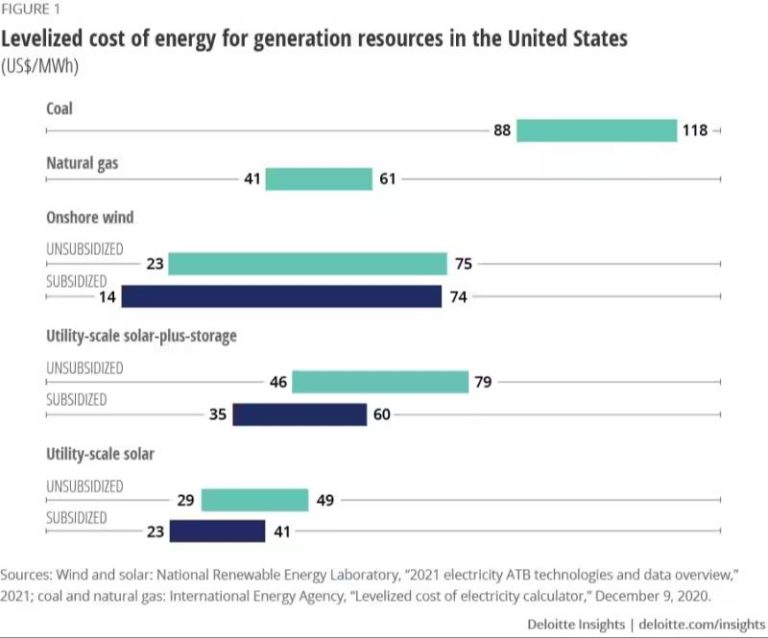Does Energy Engineering Pay Well?

Energy engineering is the engineering discipline focused on managing and optimizing systems for energy generation, storage, and consumption.(Source 1) Energy engineers work in various specialties within the field, such as wind energy, solar energy, hydroelectric energy, geothermal energy, nuclear energy, and more. They analyze energy efficiency, find ways to reduce costs and environmental impacts, implement renewable energy solutions, and help meet society’s energy demands.(Source 2) Key responsibilities include designing energy systems, overseeing construction and testing, analyzing energy usage data, recommending improvements, ensuring compliance with regulations, and managing energy projects.
Average Salary
The average salary for energy engineers in the United States is $99,420 per year according to the Bureau of Labor Statistics (BLS). This takes into account energy engineers working in various industries and locations across the country.
Specifically, the BLS reports the following average salaries for different types of energy engineers:
- Nuclear engineers – $116,140 per year
- Petroleum engineers – $132,280 per year
- Solar energy systems engineers – $99,730 per year
Overall, the average salary for energy engineers is nearly double the median salary for all occupations in the US, which is $50,910 per year according to BLS data. This indicates that energy engineering is a relatively high paying field.
Salary Range
The salary range for energy engineering jobs can vary significantly depending on experience level and location. According to ZipRecruiter, the average annual salary for entry-level energy engineering positions starts around $59,500. Mid-career engineers with 5-10 years of experience earn approximately $89,500 per year on average. The highest salaries are seen at the senior level, with top energy engineers making $140,000 or more annually.
Drilling down geographically, energy engineering salaries in high demand markets like California and Texas tend to be on the higher end of the range. According to ZipRecruiter data, senior energy engineers in Texas see average salaries approaching $150,000 per year. In California, the range for high earners is between $130,000 and $160,000. Conversely, an entry level energy engineering position in Florida may start between $55,000 and $65,000 annually.
Highest Paying Industries
According to ZipRecruiter data, the highest paying industries for energy engineers are as follows:
- Oil & Gas Extraction: Average salary of $131,500
- Management of Companies & Enterprises: Average salary of $117,500
- Mining Support Activities: Average salary of $108,500
- Petroleum & Coal Products Manufacturing: Average salary of $108,500
- Scientific Research & Development Services: Average salary of $105,000
These industries tend to pay energy engineers the highest salaries due to the high demand for their skills and expertise in managing complex energy systems and projects.
Source: https://www.zippia.com/energy-engineer-jobs/salary/
Highest Paying States
According to research by ZipRecruiter, the highest paying states for energy engineers based on average salary are New York, California, Massachusetts, District of Columbia, and Alaska. In New York, the average salary for an energy engineer is $108,123 per year. California comes in second with an average salary of $106,970 annually. Other top paying states include Massachusetts at $106,517, District of Columbia at $104,582, and Alaska at $102,027. The high salaries in states like New York and California likely reflect the combination of a high cost of living and high demand for energy engineers.
Job Outlook
The job outlook for energy engineers is projected to grow much faster than the average for all occupations. According to the U.S. Bureau of Labor Statistics, employment of petroleum engineers is projected to grow 9% from 2020 to 2030. The need for energy is projected to continue increasing as the world’s population grows, requiring engineers to design and develop new technologies and methods for extracting oil and gas more efficiently and safely.
Likewise, employment of nuclear engineers is projected to grow 7% in the next decade. As emphasis continues shifting toward renewable and alternative energy sources, there will be increased demand for nuclear engineers to research and develop nuclear technologies like small modular reactors and next generation nuclear plants.
Overall, the future looks bright for energy engineering careers, with strong job growth expected due to increasing energy demands worldwide. Energy engineers skilled in traditional and renewable energy will be needed to help meet global energy needs in a safe, efficient and environmentally responsible manner.
Factors Affecting Salary
There are several key factors that impact the salaries of energy engineers, including experience level, education, and certifications.
According to Factors Affecting Salaries of Engineers in America, experience is one of the biggest factors affecting salary. Generally, the more experience an energy engineer has, the higher their pay will be.
Having an advanced degree like a master’s degree or PhD in energy engineering or a related field can also boost salary potential compared to only having a bachelor’s degree. According to What Do Energy Jobs Pay, higher levels of education tend to lead to higher salaries.
Obtaining professional certifications like the Certified Energy Manager (CEM) credential from the Association of Energy Engineers can demonstrate expertise and lead to higher salaries. Certifications show commitment to the field and staying current on the latest skills and knowledge.
Comparison to Similar Fields
Energy engineering salaries are comparable to some related engineering fields. According to ZipRecruiter, the average salary for a mechanical energy engineer in the US as of January 2024 is $98,854 per year. This is slightly higher than the average salary for energy engineers, which is $86,305 per year according to ZipRecruiter data. Comparatively, electrical engineers make an average of $102,829 while nuclear engineers earn $127,005 on average. Overall, energy engineering salaries are in the same general range as other specialized engineering fields like mechanical, electrical and nuclear engineering.
One key difference is that energy engineering encompasses a broader scope of work across various energy domains like fossil fuels, renewables, efficiency, storage etc. Mechanical and electrical engineering tend to be more specialized in specific systems or components. So energy engineers may have a more diverse skillset but lower peak specialty salaries than some other narrowly focused engineering roles. However, experienced energy engineers with expertise in a high demand field like solar PV or battery storage can still command very competitive salaries at the upper end of the range.
Sources:
https://www.ziprecruiter.com/Salaries/Mechanical-Energy-Salary
https://www.zippia.com/energy-engineer-jobs/energy-engineer-vs-engineer-differences/
Lifestyle & Benefits
Energy engineers typically enjoy good work-life balance and benefits packages. Many work a standard 40 hour work week, though some may work longer hours to meet deadlines or travel frequently to project sites ([1]). The work does allow for a lot of flexibility though, with the ability to telecommute when not visiting sites.
Some typical benefits of an energy engineer position include health, dental and vision insurance, 401k retirement plans, paid vacation and sick leave, tuition reimbursement, profit sharing, and bonuses. Larger companies may also offer additional perks like gym memberships, free meals, childcare assistance, and more ([2]). The high salaries also enable a comfortable lifestyle with the ability to afford housing, travel, and leisure activities.
Overall, energy engineering provides intellectual stimulation through exciting technology projects, good job security in a growing field, and excellent compensation. The rewarding career allows professionals to contribute to important work while enjoying stability and a balanced life.
[1] https://www.prospects.ac.uk/job-profiles/energy-engineer
[2] https://unity.edu/careers/energy-engineer/
Conclusion
In summary, energy engineering is a field that does tend to pay quite well on average compared to other engineering disciplines. The typical salary range is $80,000 – $150,000, with the average being around $112,000. Industries like oil and gas as well as utilities tend to be the highest paying. Location also plays a role, with states like Texas and Louisiana having much higher salaries. Job growth is projected to be over 7% in the next decade, which is faster than average. Factors like experience, reputation of employer, expertise, and advanced degrees can enable energy engineers to command even higher than average compensation. Overall, energy engineering is considered a lucrative and stable engineering career path from a salary standpoint.





